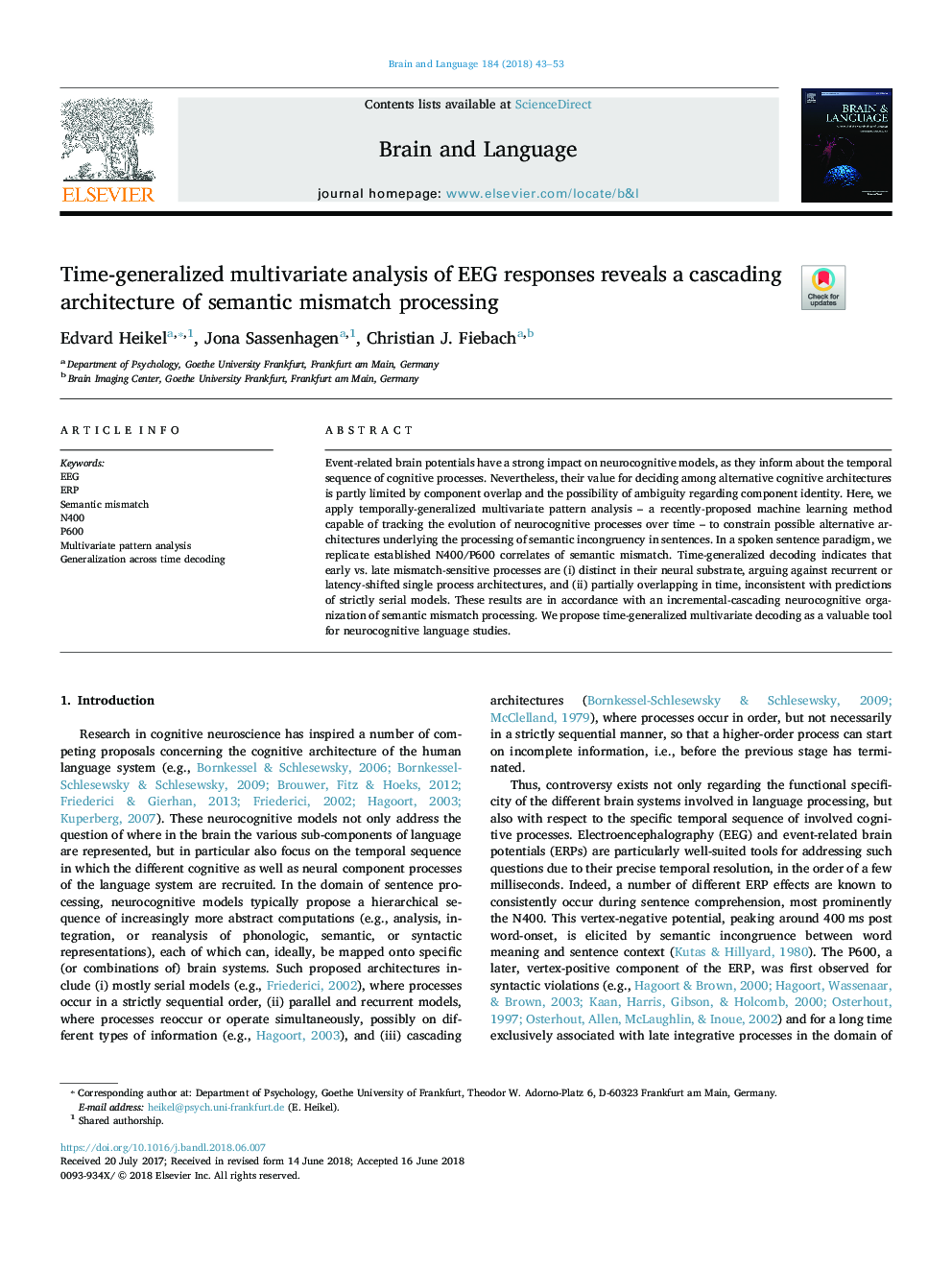| Article ID | Journal | Published Year | Pages | File Type |
|---|---|---|---|---|
| 7283331 | Brain and Language | 2018 | 11 Pages |
Abstract
Event-related brain potentials have a strong impact on neurocognitive models, as they inform about the temporal sequence of cognitive processes. Nevertheless, their value for deciding among alternative cognitive architectures is partly limited by component overlap and the possibility of ambiguity regarding component identity. Here, we apply temporally-generalized multivariate pattern analysis - a recently-proposed machine learning method capable of tracking the evolution of neurocognitive processes over time - to constrain possible alternative architectures underlying the processing of semantic incongruency in sentences. In a spoken sentence paradigm, we replicate established N400/P600 correlates of semantic mismatch. Time-generalized decoding indicates that early vs. late mismatch-sensitive processes are (i) distinct in their neural substrate, arguing against recurrent or latency-shifted single process architectures, and (ii) partially overlapping in time, inconsistent with predictions of strictly serial models. These results are in accordance with an incremental-cascading neurocognitive organization of semantic mismatch processing. We propose time-generalized multivariate decoding as a valuable tool for neurocognitive language studies.
Related Topics
Life Sciences
Neuroscience
Biological Psychiatry
Authors
Edvard Heikel, Jona Sassenhagen, Christian J. Fiebach,
